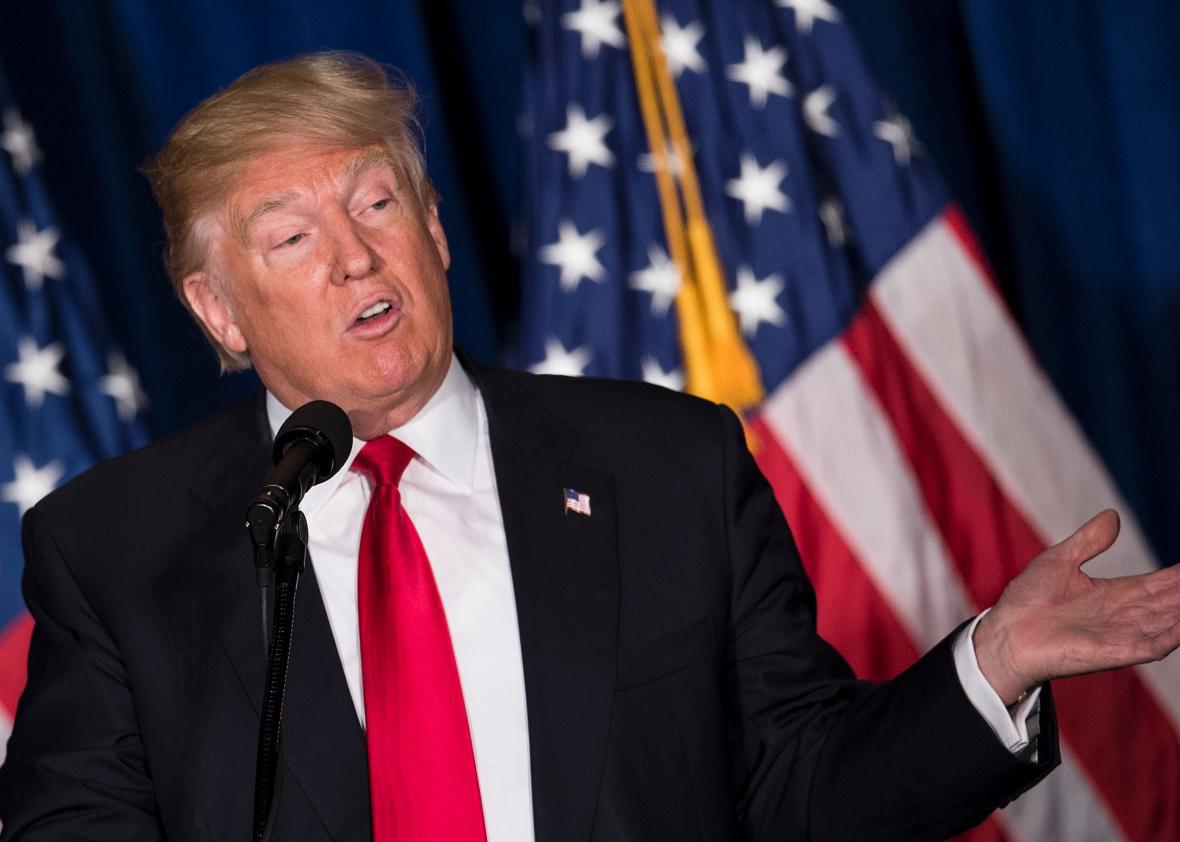Donald Trump delivered what his campaign billed as a major foreign policy address on Wednesday, which in reality was little more than a thinly veiled attempt to trick pundits and political journalists into seeing the GOP front-runner in a more “presidential” light. And since only a sliver of the chattering class was duped, Trump took to Twitter on Thursday morning to try again to gaslight the rest of the media.
Wonderful, you say? Here are some choice snippets from a few prominent reviews that must not have made it to Trump’s desk.
Wall Street Journal (editorial):
The 5,000-word speech lacked specifics by normal political standards, if not his own. … For prepared remarks, or for that matter even an after-dinner talk, Mr. Trump’s speech was especially rife with contradictions. … Mr. Trump isn’t known for close readings of his briefing books, if such documents exist, and deep policy knowledge is obviously not the source of his political appeal. But Americans typically prefer Presidents who are conversant about the world’s biggest problems beyond a sound bite or two….
New York Times (editorial):
No one’s fears are likely to be allayed by this speech, which was clearly worked up by his new campaign advisers and read from a teleprompter. It did not exhibit much grasp of the complexity of the world, understanding of the balance or exercise of power, or even a careful reading of history.
Alas [Trump’s] description of statecraft as a series of deals, brokered in eyeball-to-eyeball negotiations with foreign powers, bears no resemblance to real diplomacy. … When it came to weighing the costs and benefits of dealing with foreign powers, the businessman portrayed a zero-sum world in which profitable trade for another country is always at the expense of America. Yet when it came to describing how he would govern America, he imagined a win-win world without trade-offs: thus he suggested that he would “spend what we need to rebuild our military” but quickly offered the assurance that “we will look for savings and spend our money wisely… not one dollar can be wasted.”
This was, I repeat, a prepared speech, not some rambling remarks by a candidate in over his head. I don’t know who wrote it, but it seems to confirm rumors that no prominent Republican national-security advisers are assisting Trump’s campaign. Clearly this is the speech of an unserious man who hasn’t read up on the issues or thought through his own instincts. The dangerous thing is not so much that he knows nothing about foreign policy; it’s that he doesn’t know just how much he doesn’t know.
National Review’s Andrew C. McCarthy:
[The] speech conveyed no comprehension of what caused ISIS to rise — of where it came from (al-Qaeda), of what drives it ideologically (sharia supremacism), or of the fact that it is just a subset of a much bigger challenge. Trump merely continued to do what populists do: He told you the people you love to hate are incoherent and incompetent. He never mentions that he was with them all the way, and never offers a reason to think he is any more coherent and competent — just more shallow.
Fittingly, Trump’s review of the reaction to his speech made about as much sense as the speech itself.
